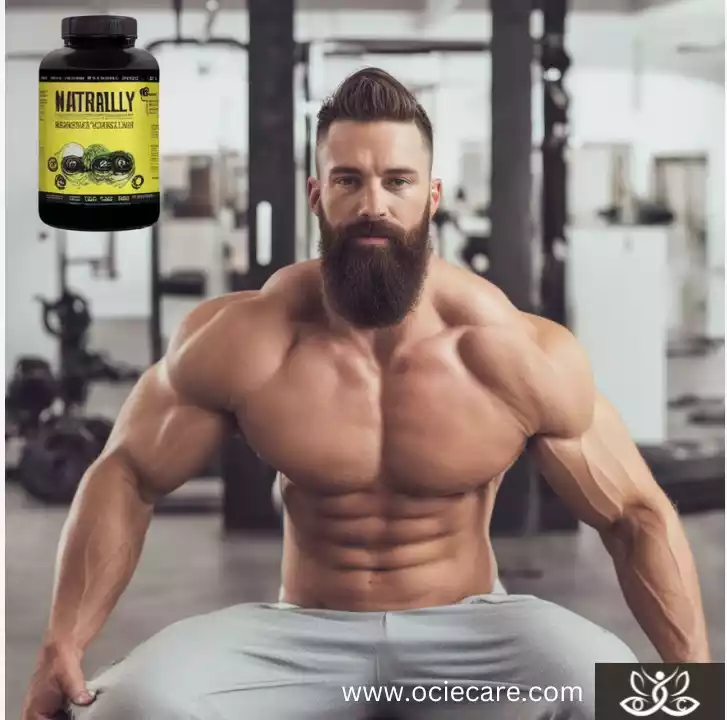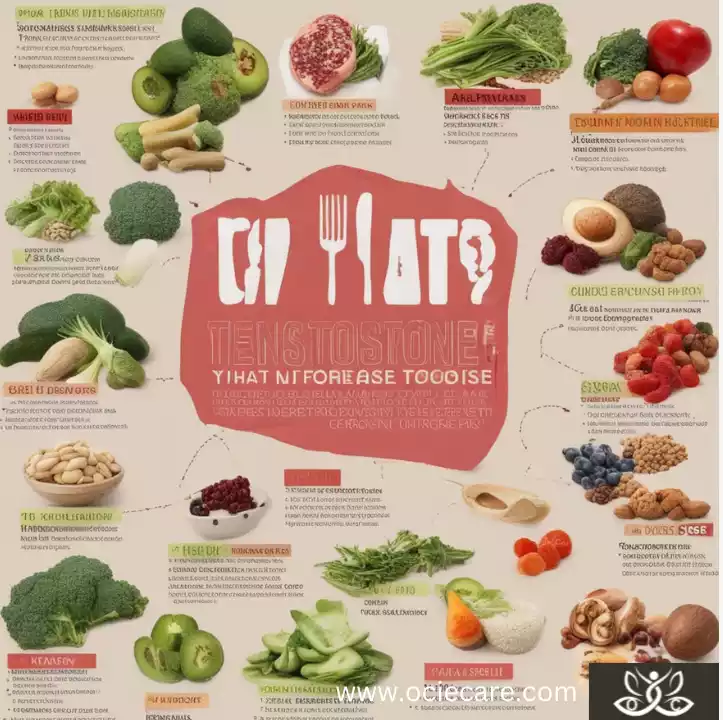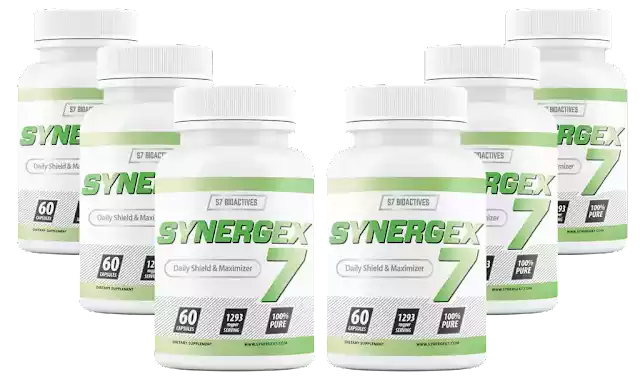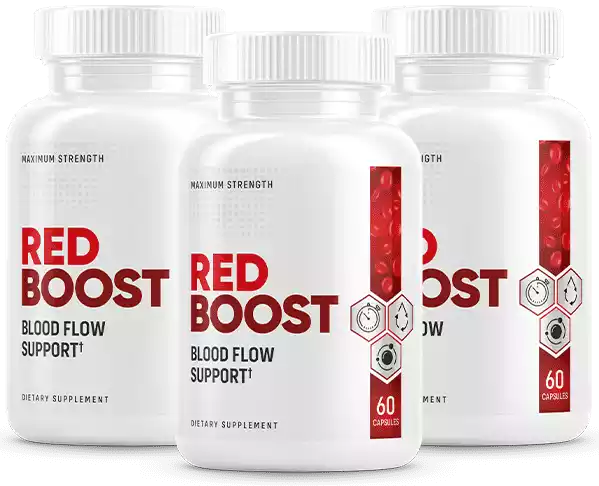Testosterone, often referred to as the “male hormone,” plays a crucial role in men’s overall health and well-being. It is responsible for various bodily functions, including the development of sexual characteristics, muscle growth, bone density, and maintaining a healthy mood. However, as men age, their testosterone levels may naturally decline, leading to various symptoms and potential health issues.
In this article, we will explore the importance of testosterone, signs of low testosterone, and effective methods to boost testosterone levels for better overall health and vitality.

How to Boost Testosterone in Men
1. What is Testosterone?
Testosterone is a hormone produced primarily in the testicles of men and, to a lesser extent, in the adrenal glands. It belongs to a group of hormones called androgens, which are responsible for the development of male sexual characteristics.
a. Importance in Men’s Health
- Testosterone plays a vital role in men’s health, both physically and mentally. It influences sexual development, regulates libido, stimulates the production of sperm, maintains muscle mass, promotes bone density, and affects mood and cognitive functions.
b. Factors Affecting Its Levels
- Several factors can influence testosterone levels in men. These include age, lifestyle choices, diet, exercise, sleep patterns, stress levels, and underlying medical conditions. Understanding these factors is crucial in implementing effective strategies to boost its levels.
2. Signs and Symptoms of Low Testosterone
Low testosterone levels, also known as hypogonadism, can result in a range of symptoms that affect men’s physical and mental well-being. Recognizing these signs is essential for early detection and appropriate treatment.
Here are some common signs and symptoms of low testosterone:
a. Decreased Libido and Sexual Dysfunction
- One of the primary indicators of low testosterone is a significant decrease in libido or sex drive. Men with low testosterone may experience a reduced interest in sexual activities and difficulties in achieving or maintaining erections.
b. Fatigue and Lack of Energy
- Low testosterone levels can lead to persistent fatigue, decreased energy levels, and a general feeling of low vitality. Men may find themselves easily exhausted, even after minimal physical or mental exertion.
c. Mood Changes and Depression
- Testosterone plays a crucial role in regulating mood and emotional well-being. Low levels of testosterone can contribute to mood swings, irritability, increased anxiety, and even depression in some cases.
d. Decreased Muscle Mass and Increased Body Fat
- Testosterone is vital for maintaining muscle mass and regulating fat distribution in the body. When its levels decline, men may experience muscle weakness, reduced muscle mass, increased body fat, and difficulty in losing weight.
3. Natural Ways to Boost Testosterone
While medical treatments are available for low testosterone, there are also natural methods that can help optimize its levels.
Here are some effective ways to naturally boost testosterone:
a. Exercise and Weightlifting
- Regular physical activity, especially strength training exercises like weightlifting, can significantly increase testosterone production. Compound exercises that target multiple muscle groups, such as squats and deadlifts, are particularly beneficial.
b. Healthy Diet and Nutrition
- Eating a balanced diet rich in nutrients is crucial for testosterone production. Include foods high in zinc, vitamin D, omega-3 fatty acids, and protein. Opt for whole grains, lean meats, nuts, seeds, fruits, and vegetables.
c. Sufficient Sleep and Stress Management
- Adequate sleep is essential for hormone regulation, including testosterone. Aim for 7-8 hours of quality sleep each night. Additionally, managing stress through techniques like meditation, deep breathing, and engaging in hobbies can help optimize testosterone levels.
d. Vitamin D and Sun Exposure
- Vitamin D deficiency has been linked to low testosterone levels. Ensure adequate sun exposure or consider vitamin D supplements to maintain optimal levels.
4. Testosterone Replacement Therapy (TRT)
When natural methods are insufficient, testosterone replacement therapy (TRT) may be recommended. TRT involves the administration of exogenous testosterone to restore hormone levels.
Here’s an overview of TRT:
a. Overview of TRT
- TRT is a medical treatment that aims to supplement testosterone levels in individuals with clinically low testosterone. It can be administered through various methods, including injections, gels, and patches.
b. Types of TRT: Injections, Gels, Patches
- Testosterone injections are the most common form of TRT and are typically administered every 1-2 weeks. Gels and patches offer alternative delivery methods and are applied to the skin daily.
c. Benefits and Risks of TRT
- TRT can provide numerous benefits, such as increased libido, improved mood, increased muscle mass, and reduced body fat. However, it is not without risks, and potential side effects include acne, fluid retention, decreased sperm production, and an increased risk of cardiovascular issues.
d. Monitoring and Safety Considerations
- Regular monitoring of hormone levels and overall health is crucial during TRT. It is essential to work closely with a qualified healthcare professional to ensure the safe and effective administration of TRT.
5. Lifestyle Changes for Testosterone Optimization
In addition to natural methods and medical treatments, certain lifestyle changes can support testosterone optimization.
Here are some key lifestyle factors to consider:
a. Avoiding Excessive Alcohol Consumption
- Excessive alcohol consumption can negatively impact testosterone production. Limiting alcohol intake or abstaining from alcohol altogether can help maintain its healthy levels.
b. Quitting Smoking
- Smoking has been linked to decreased testosterone levels. Quitting smoking not only has numerous health benefits but can also contribute to optimizing its levels.
c. Managing Weight and Body Fat
- Maintaining a healthy weight and reducing excess body fat can support testosterone production. Regular exercise, a balanced diet, and portion control can help achieve and maintain a healthy weight.
d. Reducing Stress Levels
- Chronic stress can lead to hormonal imbalances, including reduced testosterone levels. Engaging in stress-reducing activities such as yoga, meditation, or spending time in nature can be beneficial.
6. Supplements and Herbs for Testosterone Boosting
Several supplements and herbs have been studied for their potential to boost testosterone levels naturally. While their effectiveness may vary, here are a few commonly mentioned options:
a. D-Aspartic Acid
- D-Aspartic Acid is an amino acid that plays a role in testosterone synthesis. Some studies suggest that supplementation with D-Aspartic Acid may increase its levels, especially in individuals with low baseline levels.
b. Zinc
- Zinc is an essential mineral involved in testosterone production. Adequate zinc intake through diet or supplementation may support healthy levels.
c. Ashwagandha
- Ashwagandha is an adaptogenic herb that has been traditionally used in Ayurvedic medicine. Some studies suggest that Ashwagandha supplementation may help improve testosterone levels and overall male fertility.
d. Tribulus Terrestris
- Tribulus Terrestris is a plant extract commonly used in traditional medicine. While research results are mixed, some studies indicate that it may have a modest impact on testosterone levels and sexual function.
7. Medical Treatments for Low Testosterone
In addition to TRT, certain medical treatments may be considered for individuals with low testosterone.
Here are a few examples:
a. Clomiphene Citrate (Clomid)
- Clomiphene Citrate, commonly known as Clomid, is a medication that stimulates the production of hormones in the body, including testosterone. It is often prescribed to men with low testosterone and fertility issues.
b. Human Chorionic Gonadotropin (HCG)
- Human Chorionic Gonadotropin (HCG) is a hormone that stimulates the production of testosterone in men. It can be administered via injections or as a nasal spray under medical supervision.
c. Aromatase Inhibitors
- Aromatase inhibitors are medications that block the conversion of testosterone into estrogen. They are primarily used in the treatment of conditions associated with excessive estrogen levels, such as breast cancer, but may be considered in specific cases of low testosterone.
What are low testosterone symptoms?

Low testosterone, also known as low T or hypogonadism, can manifest various symptoms in men. These symptoms may vary in severity and can impact both physical and mental well-being.
Here are some common symptoms of low testosterone:
I. Decreased Libido and Sexual Dysfunction:
- One of the primary signs of low testosterone is a reduced interest in sex and a decline in sexual desire. Men may also experience difficulties in achieving or maintaining erections, leading to erectile dysfunction.
II. Fatigue and Lack of Energy:
- Low testosterone levels can contribute to persistent fatigue and a general lack of energy. Men may feel tired even after getting enough sleep and may struggle to engage in daily activities with the same vigor as before.
III. Mood Changes and Depression:
- Testosterone plays a role in regulating mood, and low levels can lead to mood swings, irritability, increased anxiety, and even feelings of depression. Men may experience a decline in overall well-being and find it challenging to enjoy activities they once found pleasurable.
IV. Loss of Muscle Mass and Increased Body Fat:
- Testosterone is crucial for maintaining muscle mass and regulating fat distribution in the body. When testosterone levels are low, men may notice a decrease in muscle mass, muscle weakness, and an increase in body fat, particularly around the abdominal area.
V. Decreased Bone Density:
- Testosterone helps maintain bone density and strength. Low testosterone levels can contribute to reduced bone mineral density, increasing the risk of osteoporosis and fractures.
VI. Changes in Sleep Patterns:
- Low testosterone may disrupt sleep patterns, leading to insomnia or restless sleep. Men may experience difficulties falling asleep or staying asleep throughout the night.
VII. Reduced Cognitive Abilities:
- Testosterone plays a role in cognitive functions such as memory, focus, and concentration. Low testosterone levels can lead to difficulties in these areas, including memory lapses, difficulty concentrating, and decreased mental sharpness.
VIII. Decreased Motivation and Drive:
- Testosterone influences motivation and drives in various aspects of life, including work, hobbies, and physical activities. Low testosterone can contribute to a decline in motivation, ambition, and overall drive to pursue goals.
It’s important to note that these symptoms can also be caused by other underlying health conditions. If you suspect you may have low testosterone, it is advisable to consult with a healthcare professional for proper evaluation and diagnosis.
Does masturbation lower testosterone?

In the realm of human health and well-being, numerous myths and misconceptions persist, often clouding the truth. One such topic that has garnered both curiosity and concern is the potential impact of masturbation on testosterone levels. We aims to delve into the heart of this matter, separating fact from fiction and providing a comprehensive understanding of the relationship between masturbation and testosterone.
A. Unraveling the Myth: The Truth About Testosterone
- The query of whether masturbation influences testosterone levels has puzzled many. However, it’s crucial to address this topic with scientific clarity.
- Research indicates that the act of masturbation itself does not significantly alter testosterone levels in the body.
- Testosterone, a hormone primarily associated with male reproductive health, plays a pivotal role in various physiological functions, including muscle mass, bone density, and libido.
B. The Science Behind It All – Understanding Testosterone
- To grasp the concept better, it’s important to understand how testosterone is produced and regulated in the body.
- The testes are responsible for manufacturing this hormone, and its production is influenced by the hypothalamus and pituitary gland.
- Contrary to popular belief, the temporary increase in testosterone after sexual activity doesn’t have a substantial impact on overall levels.
C. Busting the Myths: Separating Fact from Fiction
Myth 1: Masturbation Leads to Testosterone Depletion
- One prevalent myth suggests that frequent masturbation can lead to a depletion of testosterone levels, causing various health issues.
- However, scientific studies have shown that the fluctuations in testosterone levels after masturbation are temporary and do not lead to long-term depletion.
- The body’s natural regulatory mechanisms ensure that testosterone levels remain within a healthy range.
Myth 2: Masturbation Affects Muscle Growth
- Another misconception asserts that masturbation negatively affects muscle growth and athletic performance due to potential testosterone loss.
- In reality, the impact of post-masturbation testosterone fluctuations on muscle growth is negligible.
- Proper nutrition, exercise, and recovery remain the primary factors influencing muscle development.
D. Understanding the Body: Balance and Moderation
- While masturbation itself does not significantly lower testosterone levels, it’s important to emphasize the role of moderation.
- Excessive indulgence in any activity can disrupt the body’s equilibrium. Maintaining a balanced approach to sexual activity is key to overall well-being.
Summary:
In the grand tapestry of human physiology, the act of masturbation does not hold the power to drastically lower testosterone levels. Rather, factors such as age, genetics, and overall health exert more influence on hormonal balance. It’s important to approach this topic with a scientific mindset, dispelling myths and embracing a balanced perspective on sexual health. Remember, moderation is key, and maintaining a holistic approach to well-being is the true path to a healthy life.
Does Testosterone Increase Size?

The relationship between testosterone and various aspects of human health has long been a subject of interest and speculation. One question that often arises is whether testosterone has an impact on size – specifically, whether it contributes to the enlargement of certain body parts. Here, we’ll delve into this topic with scientific clarity, shedding light on the connection between testosterone and size.
A. Testosterone and Size: The Science Unveiled
- Testosterone, often referred to as the “male hormone,” plays a pivotal role in the development of male reproductive tissues and characteristics.
- It’s responsible for the deepening of the voice, growth of facial and body hair, and the development of the male reproductive organs during puberty.
- However, the idea that testosterone directly influences the size of specific body parts is a misconception that requires careful examination.
B. Size Myths Debunked
Myth 1: Testosterone Increases Penis Size
- One of the most common myths is that higher testosterone levels lead to a larger penis size.
- In reality, the size of the penis is largely determined by genetics and hormonal influences during puberty.
- While testosterone does play a role in the growth of the male reproductive organs during this phase, its influence on penis size beyond that period is minimal.
Myth 2: Testosterone Enlarges Muscles Permanently
- Another misconception is that elevated testosterone levels result in permanent muscle enlargement.
- While testosterone does contribute to muscle growth and development, the extent of muscle enlargement is influenced by various factors, including genetics, diet, exercise regimen, and overall health.
- Testosterone alone cannot guarantee significant and lasting muscle size increase.
C. Understanding the Complexities – The Role of Genetics
- Genetics play a fundamental role in determining various aspects of human anatomy, including size.
- The genetic blueprint inherited from parents largely dictates the potential size of body parts such as the penis and muscles.
- Testosterone’s influence interacts with these genetic factors, but it does not act as the sole determinant of size.
D. The Truth Behind Testosterone and Size – Testosterone’s Effects on Growth
- During puberty, when testosterone levels surge, it does contribute to the growth and development of male reproductive organs, including the penis.
- However, once puberty concludes, the impact of testosterone on size diminishes.
- The potential for further growth becomes limited by genetic factors, and testosterone’s influence shifts towards maintaining reproductive health and overall well-being.
Summary:
While testosterone does play a crucial role in the growth and development of certain body parts during puberty, its influence on size beyond this stage is limited. Genetic factors, lifestyle choices, and overall health have a substantial impact on body size and proportions. Rather than solely focusing on testosterone as a determinant of size, a holistic approach that encompasses genetics, lifestyle, and health is key to understanding the complex interplay between hormones and human anatomy.
Does Holding Sperm Increase Testosterone?
In the realm of human health and wellness, numerous theories and beliefs persist, often creating confusion around various aspects of our physiology. One topic that has garnered attention is the idea that holding sperm – abstaining from ejaculation – can lead to an increase in testosterone levels. We’ll embark on a scientific journey to explore the potential connection between holding sperm and testosterone, shedding light on the truth behind the myth.
A. Holding Sperm and Testosterone: Separating Fact from Fiction
- The notion that holding sperm can lead to an increase in testosterone levels stems from the idea that by refraining from ejaculation, the body conserves its resources, including the hormones involved in reproduction.
- However, while this theory sounds plausible, the actual relationship between holding sperm and testosterone is more nuanced.
B. The Science Behind Testosterone – Understanding Testosterone Regulation
- To grasp this concept, it’s vital to comprehend how testosterone is regulated within the body.
- The hypothalamus and pituitary gland play pivotal roles in the production and release of testosterone.
- Signals from the brain stimulate the testes to produce this hormone, and the levels are carefully balanced through a negative feedback mechanism.
C. Dispelling the Myth: Does Holding Sperm Increase Testosterone?
Temporary Fluctuations
- Research indicates that abstaining from ejaculation does lead to a temporary increase in testosterone levels.
- However, this increase is relatively modest and short-lived.
- Studies have shown that testosterone levels rise after several days of abstinence but tend to return to baseline levels within a week.
Long-Term Impact
- While short-term fluctuations occur, there is limited evidence to suggest that prolonged abstinence significantly and consistently raises testosterone levels in the long run.
- In fact, frequent ejaculation is considered a healthy aspect of sexual function and can contribute to overall reproductive health.
D. The Benefits of Ejaculation
Prostate Health
- Regular ejaculation is associated with potential benefits, particularly in terms of prostate health.
- Ejaculation helps to flush out potentially harmful substances from the prostate gland, reducing the risk of certain prostate issues.
Hormonal Balance
- Engaging in regular sexual activity helps maintain hormonal balance.
- Ejaculation triggers the release of oxytocin, dopamine, and endorphins, which contribute to overall well-being and emotional health.
Summary:
While there is a temporary increase in testosterone levels associated with abstaining from ejaculation, the long-term impact of holding sperm on testosterone levels is limited. Regular ejaculation contributes to reproductive health, emotional well-being, and hormonal balance. It’s important to approach this topic with a balanced perspective, recognizing that overall sexual health involves a combination of factors, including regular sexual activity and a healthy lifestyle.
How Vegan Diet Helps to Improve: Magically On Body & Mind, Digestion & Weight In 15 Days
How To Naturally Increase Testosterone

In the pursuit of vitality and well-being, many individuals seek ways to naturally enhance their testosterone levels. Whether for improved muscle development, energy, or overall health, understanding the methods to boost testosterone naturally is essential. Let’s explore a range of strategies that can help elevate testosterone levels effectively and safely.
A. The Quest for Natural Testosterone Enhancement – Balancing Hormones
- Before delving into specific strategies, it’s crucial to recognize the significance of hormonal balance. Testosterone, a key hormone for both men and women, plays a vital role in various physiological functions. Balancing hormones and maintaining overall health are essential foundations for boosting testosterone levels.
B. Strategies for Natural Testosterone Enhancement
I. Maintain a Healthy Diet
- Nutrition plays a pivotal role in hormonal regulation.
- Incorporating a diet rich in whole foods, lean proteins, healthy fats, and a variety of fruits and vegetables can support testosterone production.
- Essential nutrients like zinc, vitamin D, and omega-3 fatty acids are particularly beneficial.
II. Prioritize Physical Activity
- Engaging in regular physical exercise, including both cardiovascular activities and strength training, can have a positive impact on testosterone levels.
- Compound exercises like squats, deadlifts, and bench presses are especially effective for stimulating testosterone production.
III. Get Sufficient Sleep
- Adequate sleep is crucial for hormonal balance, including testosterone.
- Aim for 7-9 hours of quality sleep per night to support overall health and well-being.
IV. Manage Stress
- Chronic stress can lead to elevated cortisol levels, which can negatively impact testosterone production.
- Incorporating stress-reduction techniques such as mindfulness, meditation, and deep breathing can help maintain hormonal equilibrium.
V. Maintain a Healthy Weight
- Maintaining a healthy weight is essential for hormonal balance.
- Both obesity and excessive thinness can disrupt hormonal function, affecting testosterone levels.
VI. Stay Hydrated
- Proper hydration is vital for overall health, and it can also support hormonal function.
- Aim to drink an adequate amount of water throughout the day.
VII. Limit Alcohol Consumption
- Excessive alcohol consumption can negatively affect testosterone levels.
- Moderation is key to maintaining hormonal health.
VIII. Incorporate Herbal Supplements
- Certain herbal supplements, such as fenugreek, ashwagandha, and tribulus terrestris, have been associated with potential testosterone-boosting effects.
- However, it’s important to consult a healthcare professional before using any supplements.
IX. Ensure Vitamin D Sufficiency
- Vitamin D deficiency has been linked to lower testosterone levels.
- Spending time in sunlight and consuming foods rich in vitamin D can help maintain adequate levels.
X. Consider Intermittent Fasting
- Intermittent fasting, when done correctly, may have positive effects on hormonal balance.
- However, individual responses vary, so consult a healthcare professional before attempting this approach.
Summary:
Elevating testosterone levels naturally requires a holistic approach to health and well-being. By embracing a combination of healthy eating, regular exercise, stress management, and adequate sleep, individuals can support their hormonal balance and overall vitality. Remember that the journey to optimized testosterone levels is a gradual one, and the pursuit of balanced health should always be the primary goal.
Foods That Increase Testosterone

The role of nutrition in influencing our hormones cannot be overstated. Testosterone, a key hormone that plays a crucial role in various aspects of health, can be positively impacted by the foods we consume. Let’s explore a range of foods that have been associated with naturally boosting testosterone levels.
Harnessing the Power of Testosterone-Boosting Foods
- The foods we eat provide the building blocks for our body’s hormonal processes.
- Consuming a well-balanced diet rich in specific nutrients can support testosterone production and maintenance, contributing to overall well-being.
Foods That May Boost Testosterone
I. Lean Protein
- Protein is essential for muscle growth and hormone production. Incorporating lean sources of protein such as chicken, turkey, fish, lean beef, and tofu can provide the amino acids necessary for testosterone synthesis.
II. Eggs
- Eggs are a rich source of vitamin D, which has been linked to healthy testosterone levels. Opt for whole eggs to benefit from both the yolk and the white.
III. Nuts and Seeds
- Nuts and seeds like almonds, walnuts, and flaxseeds are excellent sources of healthy fats. These fats are crucial for hormone production and overall health.
IV. Cruciferous Vegetables
- Broccoli, cauliflower, Brussels sprouts, and cabbage belong to the cruciferous vegetable family. They contain compounds that may help regulate estrogen levels, indirectly supporting testosterone balance.
V. Garlic
- Garlic contains allicin, a compound believed to stimulate testosterone production. It also offers various other health benefits.
VI. Fruits
Here are a few fruits that offer potential benefits in this regard:
a. Pomegranate:
- Pomegranates are rich in antioxidants, which help reduce oxidative stress and inflammation in the body. Some studies suggest that consuming pomegranate juice may increase testosterone levels and improve overall mood and well-being.
b. Grapes:
- Grapes, especially red and purple varieties, contain resveratrol, a compound known for its antioxidant properties. Resveratrol has shown potential in enhancing testosterone production and improve sperm health in certain studies.
c. Citrus Fruits:
- Citrus fruits like oranges, grapefruits, and lemons are high in vitamin C, which acts as an antioxidant and may help protect the Leydig cells in the testes responsible for testosterone production. Adequate vitamin C intake is important for overall hormonal balance.
d. Bananas:
- Bananas are a good source of potassium, which plays a role in regulating testosterone levels. Additionally, they provide vitamin B6, which helps in the production of testosterone.
e. Avocado:
- Avocados are rich in healthy fats, including monounsaturated fats and omega-3 fatty acids. These fats are important for hormone production and may contribute to overall hormonal balance.
VII. Oysters
- Oysters are renowned for their zinc content. Zinc is a mineral essential for testosterone production and overall reproductive health.
VIII. Beans and Legumes
- Beans and legumes offer a combination of protein and fiber. They can contribute to steady energy levels and support hormonal balance.
IX. Spinach
- Spinach is a potent source of magnesium, a mineral that plays a role in hundreds of enzymatic reactions, including those related to testosterone production.
X. Fatty Fish
- Fatty fish like salmon, mackerel, and trout are high in omega-3 fatty acids. These fats are not only heart-healthy but also contribute to hormone production.
XI. Drinks:
Here are a few drinks that offer potential benefits:
a. Green Tea:
- Green tea is rich in antioxidants and bioactive compounds like catechins. Some studies suggest that catechins may help inhibit the enzyme that converts testosterone into estrogen, thereby potentially supporting healthy testosterone levels.
b. Pomegranate Juice:
- Pomegranate juice is packed with antioxidants, including polyphenols, which have shown the potential in increasing testosterone levels and improving overall mood and well-being. Its anti-inflammatory properties may also contribute to hormonal health.
c. Milk:
- Milk is a good source of protein, calcium, and vitamin D. Adequate vitamin D levels are associated with healthy testosterone levels. Protein is essential for hormone synthesis, and calcium is involved in muscle function, which indirectly affects testosterone.
d. Vegetable Juice:
- Drinking vegetable juices, especially those made from cruciferous vegetables like broccoli and kale, can provide important nutrients and antioxidants. These vegetables contain compounds that support hormonal balance and may help regulate estrogen levels, indirectly benefiting testosterone production.
e. Water:
- Staying hydrated is essential for overall health and hormone regulation. Water helps maintain proper bodily functions, including hormone production and balance. Dehydration can negatively impact hormone levels, so it’s important to drink sufficient water throughout the day.
Summary:
The foods we choose to nourish our bodies have a profound impact on our hormonal balance and overall well-being. By incorporating a variety of nutrient-rich foods into our diet, we can support healthy testosterone levels and optimize our overall health. Remember that dietary choices work in harmony with other lifestyle factors to create a holistic approach to well-being.
Best Testosterone Supplements
The market is flooded with a plethora of testosterone supplements, each promising various benefits for hormonal balance, muscle growth, and overall well-being. Navigating through the options can be overwhelming. Here, we’ll guide you through a comprehensive overview of some of the top testosterone supplements, their potential benefits, and important considerations.
Understanding Testosterone Supplements – Supplements as Adjuncts
- It’s important to clarify that no testosterone supplement can replace a healthy lifestyle, balanced nutrition, and appropriate medical care. Supplements should be viewed as potential adjuncts to these foundational aspects of well-being.
Top Testosterone Supplements: An Overview
I. D-Aspartic Acid
- D-Aspartic Acid is an amino acid that has been studied for its potential to support testosterone production. Some research suggests that it may have a positive impact on testosterone levels, particularly in individuals with low levels.
II. Fenugreek
- Fenugreek is an herb that has been used in traditional medicine for various purposes, including its potential to enhance libido and support testosterone levels. Some studies suggest that fenugreek supplements may have a modest effect on testosterone.
III. Tribulus Terrestris
- Tribulus Terrestris is a plant extract often marketed as a testosterone booster. While it’s popular in traditional medicine, the scientific evidence supporting its effectiveness for increasing testosterone levels is limited.
IV. Vitamin D
- Vitamin D, often referred to as the “sunshine vitamin,” is crucial for various physiological functions, including hormone production. Research suggests that individuals with vitamin D deficiency may benefit from supplementation to support healthy testosterone levels.
V. Zinc
- Zinc is a mineral essential for hormone production and overall health. Adequate zinc intake can help maintain healthy testosterone levels. However, excessive zinc supplementation should be avoided, as it can have adverse effects.
Important Considerations
I. Consult a Healthcare Professional
- Before starting any testosterone supplement, it’s essential to consult a healthcare provider. They can assess your individual health status, discuss potential interactions or side effects, and recommend the most suitable approach.
II. Quality Matters
- Not all supplements are created equal. Choose products from reputable brands that undergo third-party testing for quality and purity.
III. Dosage and Timing
- The appropriate dosage and timing of supplements can vary. Follow the recommended dosages provided by the manufacturer or as advised by a healthcare professional.
IV. Individual Response
- Keep in mind that individual responses to supplements can vary. What works well for one person may not yield the same results for another.
Summary:
The decision to use testosterone supplements should be made with careful consideration and under the guidance of a healthcare professional. While some supplements may offer potential benefits, they are most effective when integrated into a holistic approach to well-being that includes a balanced diet, regular exercise, stress management, and adequate sleep. Prioritize your overall health and work collaboratively with a healthcare provider to make informed choices that align with your wellness goals.
The Encyclopedia of Natural Remedies: Common Ailments Seniors Face After 45
Best Natural Testosterone Booster for Males Over 40
As men age, the levels of testosterone in the body may naturally decline. This can lead to various changes in health and well-being. Many individuals seek natural ways to support their testosterone levels as they enter their 40s and beyond. Here, we’ll explore some of the best natural testosterone boosters for men over 40, helping you navigate this stage of life with vitality.
The Importance of Hormonal Health – Understanding Testosterone’s Role
- Testosterone plays a critical role in maintaining energy, muscle mass, bone density, and overall vitality. As levels decrease with age, it’s important to prioritize strategies that support healthy testosterone levels.
Best Natural Testosterone Boosters for Men Over 40
I. Resistance Training
- Engaging in regular resistance training, such as weightlifting, can help stimulate testosterone production. Focus on compound exercises that engage multiple muscle groups.
II. High-Intensity Interval Training (HIIT)
- HIIT workouts involve alternating between intense bursts of exercise and periods of rest. Research suggests that HIIT can have positive effects on testosterone levels.
III. Healthy Fats
- Incorporate healthy fats into your diet, such as those found in avocados, nuts, seeds, and fatty fish. These fats are essential for hormone production.
IV. Vitamin D
- Vitamin D deficiency has been linked to low testosterone levels. Spend time outdoors in sunlight and consider adding vitamin D-rich foods or supplements to your routine.
V. Zinc-Rich Foods
- Zinc is a key mineral for testosterone production. Foods like oysters, lean meats, nuts, and seeds are excellent sources of zinc.
VI. Sleep Quality
- Prioritize high-quality sleep, aiming for 7-9 hours each night. Adequate sleep is essential for hormone regulation and overall well-being.
VII. Stress Management
- Chronic stress can lead to elevated cortisol levels, which can impact testosterone production. Incorporate stress-reduction techniques like meditation, deep breathing, and relaxation.
VIII. Nutrient-Rich Diet
- A balanced diet rich in whole foods, vegetables, fruits, lean proteins, and whole grains provides the necessary nutrients for hormonal health.
IX. Adequate Hydration
- Proper hydration supports overall health, including hormonal balance. Drink water throughout the day to stay hydrated.
X. Limit Alcohol and Sugar
- Excessive alcohol consumption and high sugar intake can negatively affect testosterone levels. Moderation is key.
Important Considerations
I. Individual Variation
- Individual responses to these strategies may vary. It’s important to be patient and consistent in adopting these lifestyle changes.
II. Consultation with a Healthcare Professional
- Before making significant changes to your diet or exercise routine, consult a healthcare provider, especially if you have underlying health conditions.
Summary:
Maintaining healthy testosterone levels as you age involves a combination of lifestyle choices that support overall well-being. By incorporating these natural testosterone boosters into your daily routine, you can navigate your 40s and beyond with vitality, energy, and a sense of well-being. Remember that hormonal health is a holistic journey that encompasses physical activity, nutrition, stress management, and restful sleep.
Best Testosterone Booster / Testosterone Pills
Synergex7 – The Limitless Sexual Power For Men!
Introducing Synergex7 – The ultimate solution for men who want to unleash their limitless sexual power! Imagine rocking your woman with a revolving door of mind-bending full-body orgasms that change her mind, body, and soul. Picture having the energy to outperform younger men while maintaining the wisdom of your years. Say goodbye to the “dad bod” and hello to a strong, lean, and powerful torso that commands respect from other men and ignites lust in women.
Read the Review: Synergex 7 Review | Sacred Boost Your Libido and Sexual Performance Naturally
Say goodbye to lagging libido, low energy, and weak erections, and say hello to the power of Synergex7. With just 5 seconds each day, you can experience automatic results that will transform your sex life and revitalize your virility. Don’t settle for mediocre performance in the bedroom. Take control of your sexual health with Synergex7 and unleash your limitless sexual power today!”
Red Boost: Enhance low libido
Introducing Red Boost, the ultimate natural dietary supplement designed specifically for men. This powerful formula is a natural nitric oxide booster that enhances the circulation of blood across the body cells, promoting healthy reproductive well-being.
Read the complete Review of Red Boost
Red Boost works by heightening the nitric oxide in your body, thereby maximizing blood circulation throughout your body. This increased blood flow aids in supplying your body with oxygen and essential nutrients, promoting peak performance everywhere.
Some of the key components of Red Boost include Fenugreek, Nettle Extract, Tongkat Ali, Horny Goat Weed, and L-Citrulline. These powerful natural ingredients work in conjunction to enhance vitality, energy, cognitive and hormonal well-being, and reduce oxidative stress and fatigue levels.
Red Boost is available as easy-to-consume oral capsules that ensure you get the required amount of nutrients and minerals to support your body cells. It’s time to experience the power of Red Boost and achieve your peak performance today!
Conclusion
In conclusion, supporting healthy testosterone levels requires a holistic approach. Lifestyle factors such as maintaining a healthy weight, engaging in regular exercise, following a nutrient-dense diet, and managing stress effectively play key roles.
Additionally, adequate sleep, limiting alcohol consumption and smoking, and considering supplements like D-Aspartic Acid, fenugreek, zinc, vitamin D, and ashwagandha may offer potential benefits.
However, it’s important to consult with a healthcare professional before starting any new supplement. For men over 40, these strategies become even more crucial as testosterone levels naturally decline with age.
By prioritizing overall health and well-being, individuals can support optimal testosterone production and enhance their quality of life.
FAQs
Q. Are there any side effects of testosterone replacement therapy?
A. Testosterone replacement therapy (TRT) may have potential side effects, including acne, fluid retention, decreased sperm production, and an increased risk of cardiovascular issues. Regular monitoring and working closely with a healthcare professional can help manage and mitigate these risks.
Q. Can lifestyle changes alone increase testosterone levels?
A. Yes, certain lifestyle changes like regular exercise, maintaining a healthy weight, managing stress levels, and getting sufficient sleep can contribute to natural testosterone optimization. However, individual results may vary, and in some cases, medical intervention may be necessary.
Q. How long does it take to see results from testosterone-boosting supplements?
A. The timeframe for seeing results from boosting supplements may vary depending on the individual and the specific supplement used. It’s important to follow recommended dosage guidelines and allow sufficient time for the supplements to take effect. Results may become noticeable within a few weeks to a few months.
Q. Is it possible to naturally increase testosterone levels as you age?
A. While levels naturally decline with age, there are steps individuals can take to support healthy testosterone production. Lifestyle factors such as exercise, diet, sleep, stress management, and avoiding unhealthy habits like excessive alcohol consumption and smoking can help optimize testosterone levels.
Q. Are there any risks associated with using herbs and supplements for testosterone boosting?
A. While many herbs and supplements have been traditionally used for boosting, it’s important to exercise caution and consult with a healthcare professional before starting any new supplements. Some herbs and supplements may interact with medications or have potential side effects, especially in individuals with underlying health conditions.



Can you be more specific about the content of your article? After reading it, I still have some doubts. Hope you can help me.